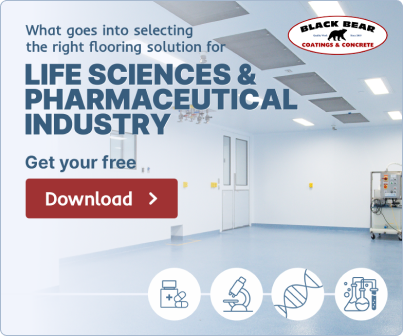Both methyl methacrylate (MMA) and epoxy floor coatings are viable alternatives for a concrete floor. However, each has its advantages and disadvantages. Here are a few tips on which facilities and business environments are best suited for MMA floors versus epoxy floors. Methyl methacrylate pros and cons – MMA cures quickly, so it’s a good…
Posts Tagged: Pharmaceutical flooring
The standards and practices that govern the manufacturing industry are regulated by several agencies. The Current Good Manufacturing Practices (CGMP) is an example of mandated standards facilities must abide by. These practices are focused on promoting clean and sterile work environments. Manufacturing plants are subject to multiple investigations throughout the year. From OSHA to the…
Acids, alkalis, solvents – these are just a few of the chemical compounds found in pharmaceutical manufacturing plants that are corrosive in nature and will destroy industrial flooring. Byproducts of biochemical engineering can deteriorate substrate, compromising the safety and integrity of a production environment. The pharmaceutical manufacturing industry requires commercial flooring to adhere to strict…
The healthcare and pharmaceutical manufacturing industries require mission-critical performance from a commercial flooring system. The versatility of polished concrete offers an array of benefits that these companies should recognize. Polished concrete has become the solution of choice for many commercial buildings including medical device and drug production facilities. Pharmaceutical companies take advantage of the durability…
Pharmaceutical manufacturing environments are subject to regulations issued by OSHA, as well as the FDA, which affect flooring choices. For example, the FDA’s Current Good Manufacturing Practices (CGMP) dictate that the porous concrete floors in pharmaceutical manufacturing plants must be coated with epoxies that form a barrier against contaminants, pollutants, and contaminants. Regulations also include…



